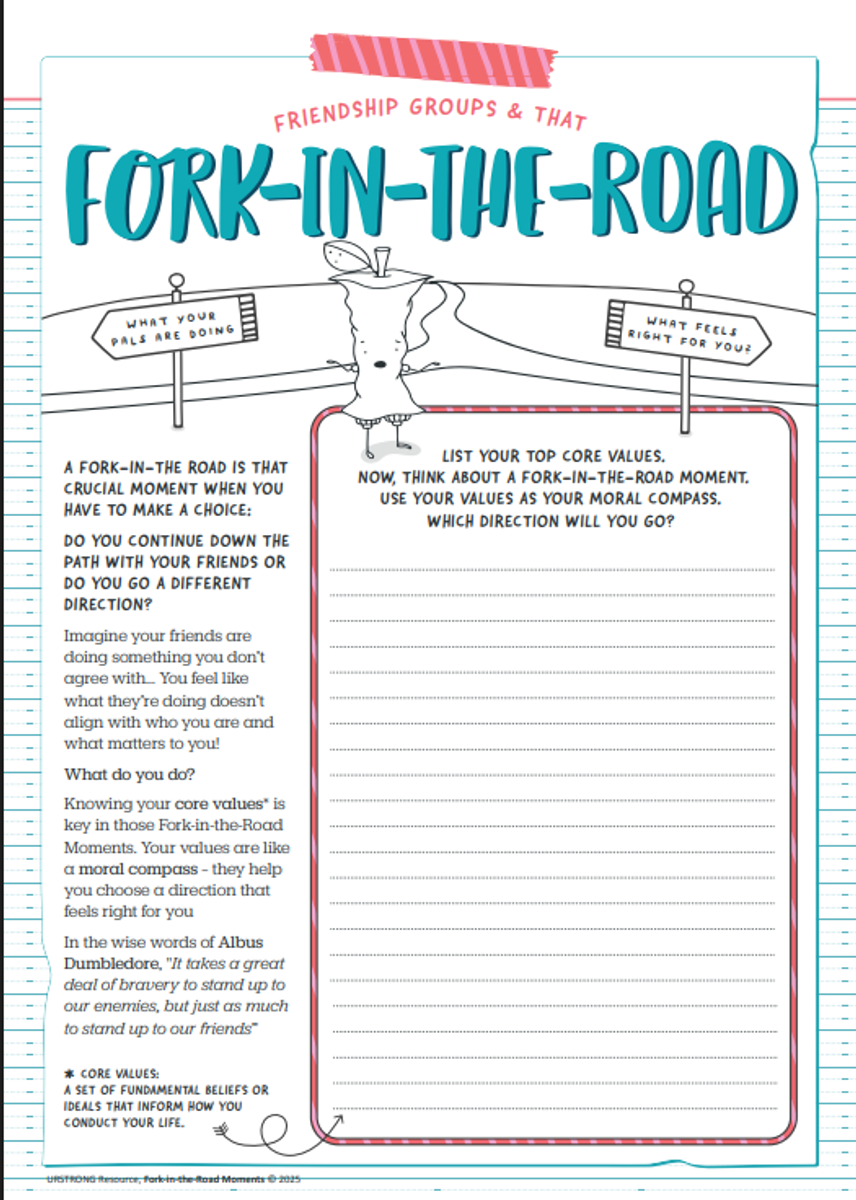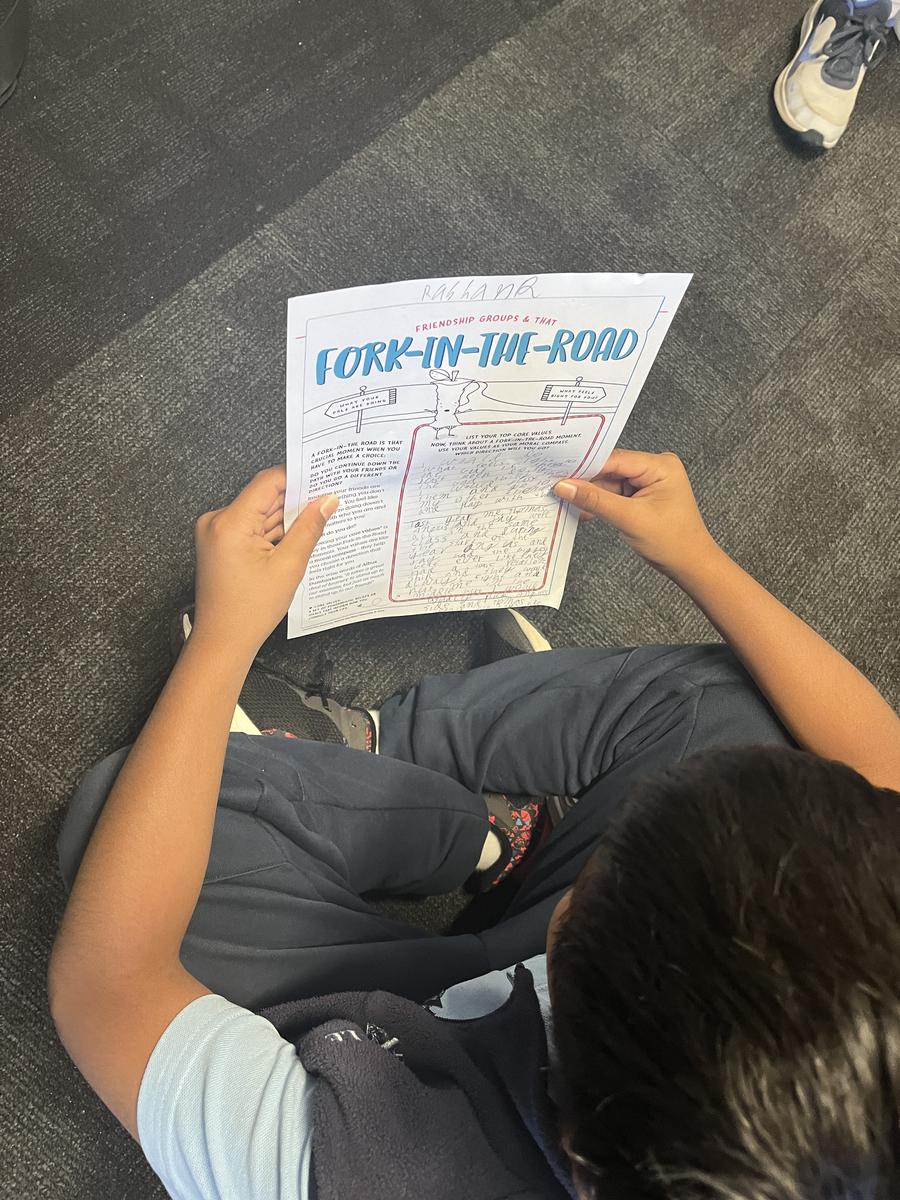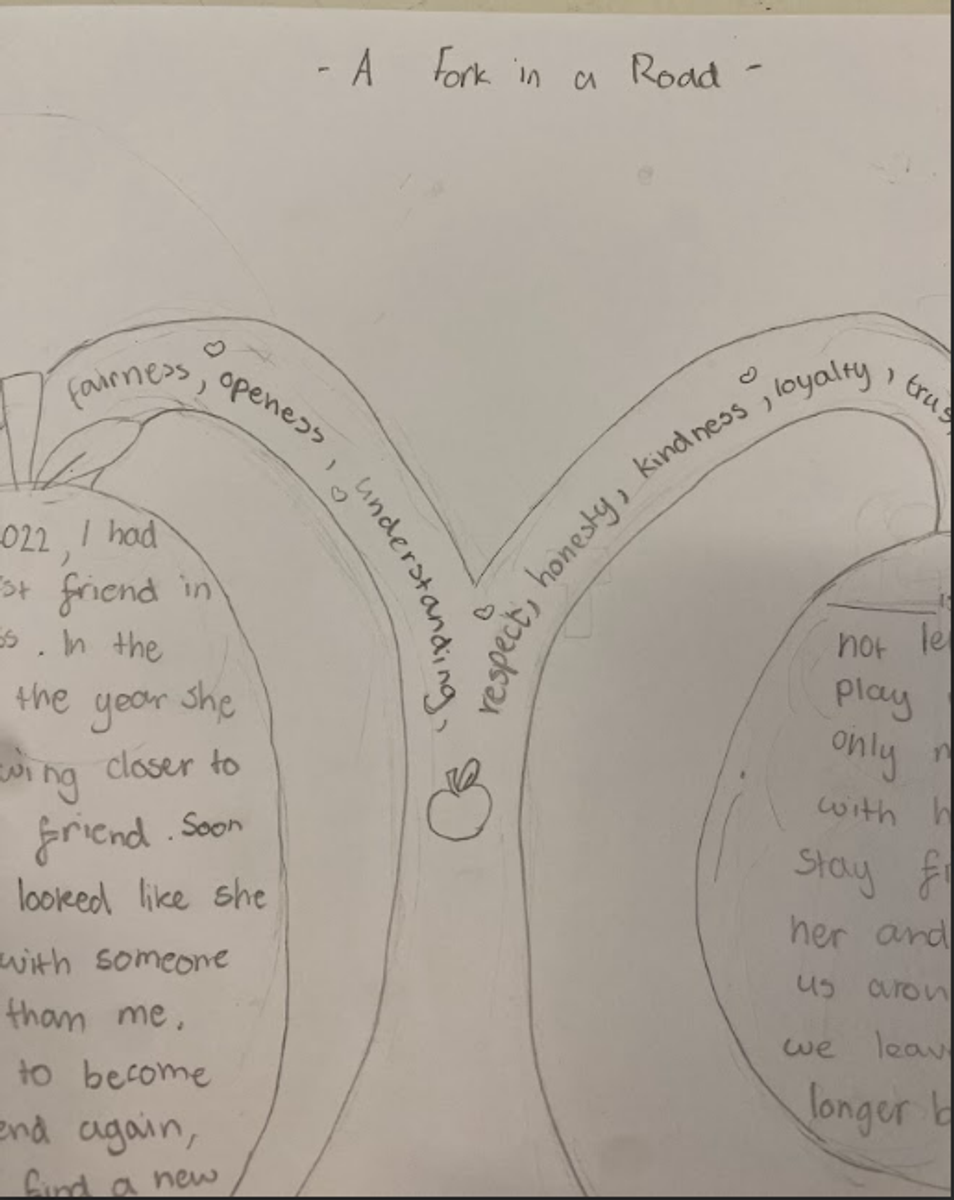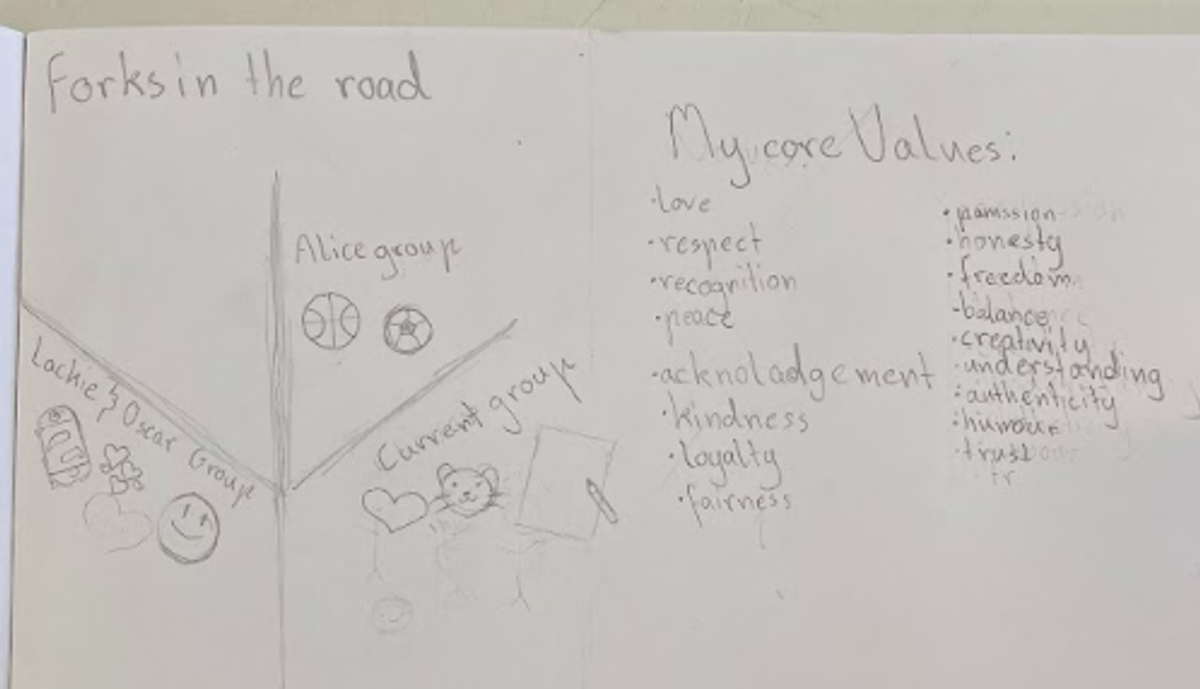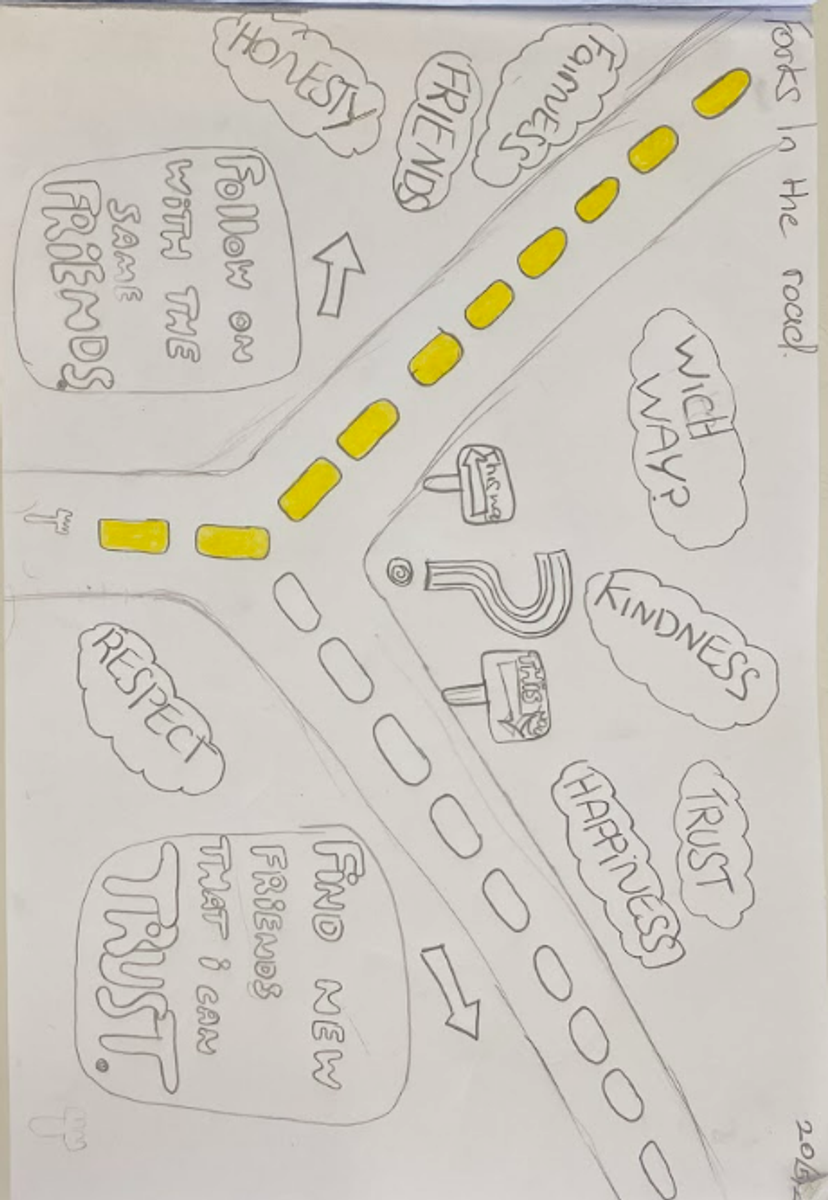Year 5/6 Bulletin
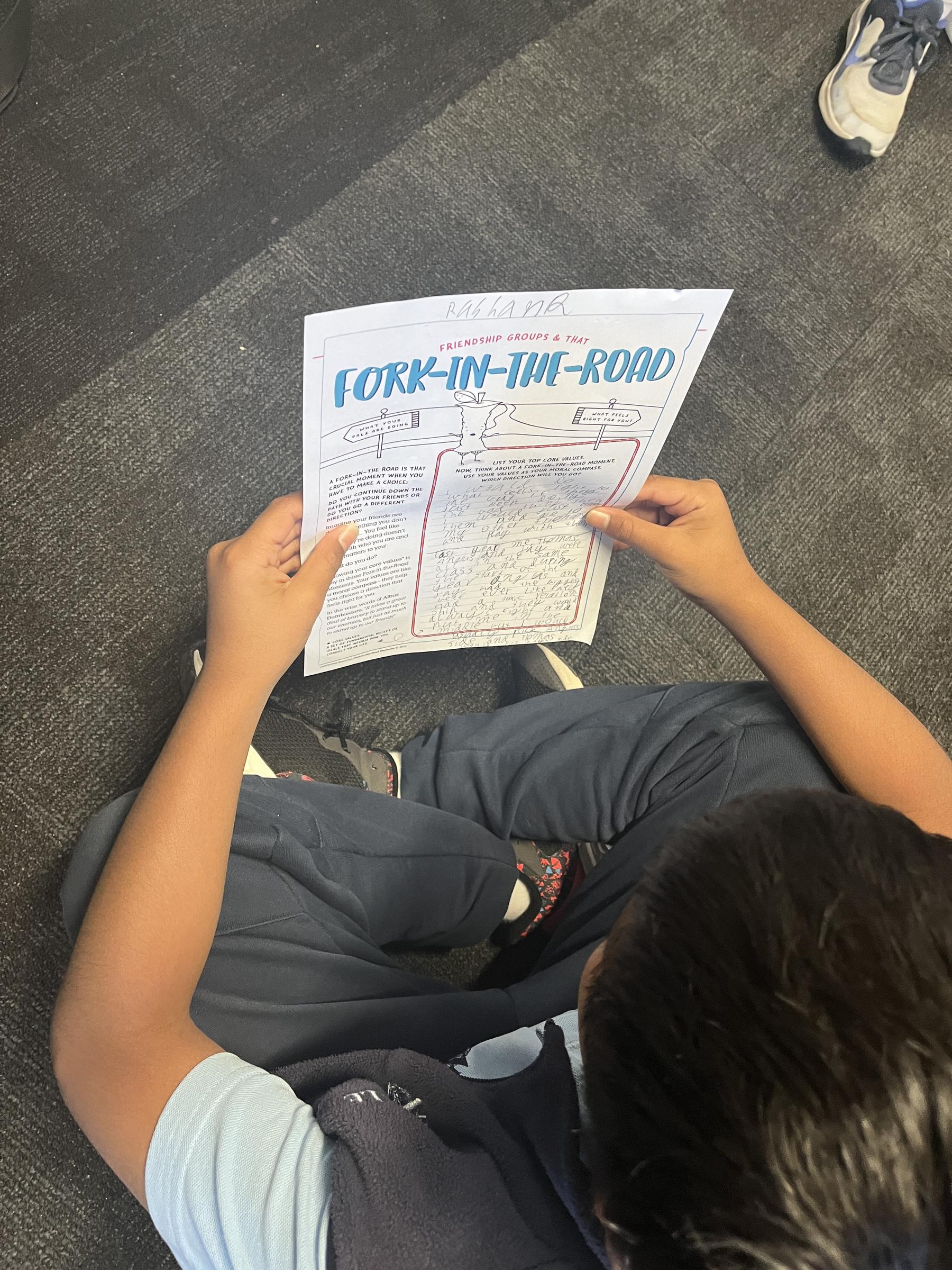
Fork in the Road Friendships
What do we value in our friendships?
This week in Wellbeing, students explored “fork-in-the-road” moments in friendships, when we face a choice about how to respond, especially when a friend’s behaviour doesn’t align with what we value.
Learning Intention:
Identify moments in friendships when we must make choices that reflect our values and practise responding in ways that build healthy, respectful relationships.
WHOLE (Class Focus):
As a class, we created a list of values that are important to us in our friendships. These included qualities such as honesty, kindness, loyalty, and trust. We took time to reflect on each one and chose the values that resonated most personally, discussing why they mattered and how they help form strong, respectful relationships.
SMALL (Student Activity):
Students then reflected on a fork-in-the-road moment from their own lives and thought about how they could respond in a way that stayed true to their values.
-In 5/6L, students recorded their thinking using the template below.
-In 5/6J, students used their Wellbeing books, combining images and words to represent their fork-in-the-road moment and their core friendship values.
Across both classes, students showed maturity and thoughtfulness in their reflections, and many demonstrated a strong understanding of how their values guide their actions.
WHOLE (Class Sharing and Discussion):
To wrap up the sessions, students were invited to share their "fork-in-the-road" moment or talk about what they value in a friend. While sharing was optional, many students felt confident speaking in our supportive and respectful classroom environment.
These discussions helped build a deeper sense of empathy and understanding among peers. It was powerful to see how students supported each other’s reflections and connected over shared values.
This learning has encouraged students to see that while friendships can be complex, we all have the power to choose kindness, honesty, and respect, especially when things get tough. We hope students continue to reflect on these moments and feel empowered to act in ways that align with who they are.
How you can support the learning at home:
Talk about values in everyday life-
During dinner, car rides or while watching TV, chat about what your family believes is important in friendships. You might talk about kindness, honesty or being a good listener. Ask your child what matters to them and why.
Share your own friendship moments-
Let your child know about a time when you had to make a tricky choice in a friendship or decision that significantly impacted changing something in your life. Talk about what happened, how you felt, and what you learned. This helps children see that everyone faces challenges in friendship and life.
Practise different friendship situations-
Try acting out simple friendship problems together. For example, “What would you do if your friend left you out?” or “What if someone said something unkind?” Talking through these ideas helps build confidence.
Notice and praise values in action-
If your child shows kindness or makes a choice that shows their values, let them know you noticed. A simple “That was really thoughtful” or “You showed great courage then” can go a long way.
Jenny and Luca
Year 5/6 Team
Jenny.Kourkouvelis@education.vic.gov.au
Luca.RuddSievers@education.vic.gov.au

